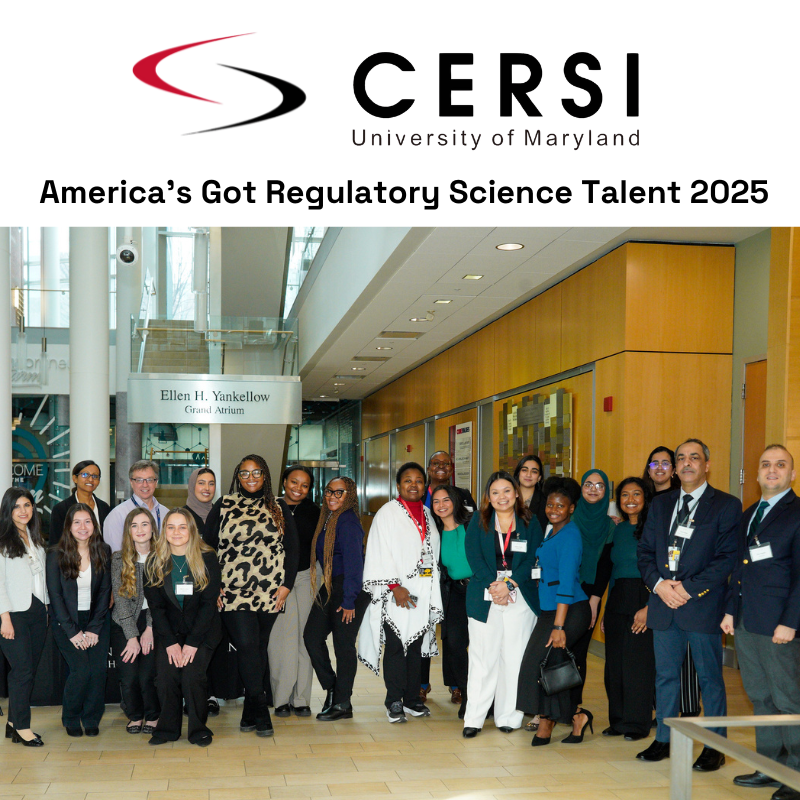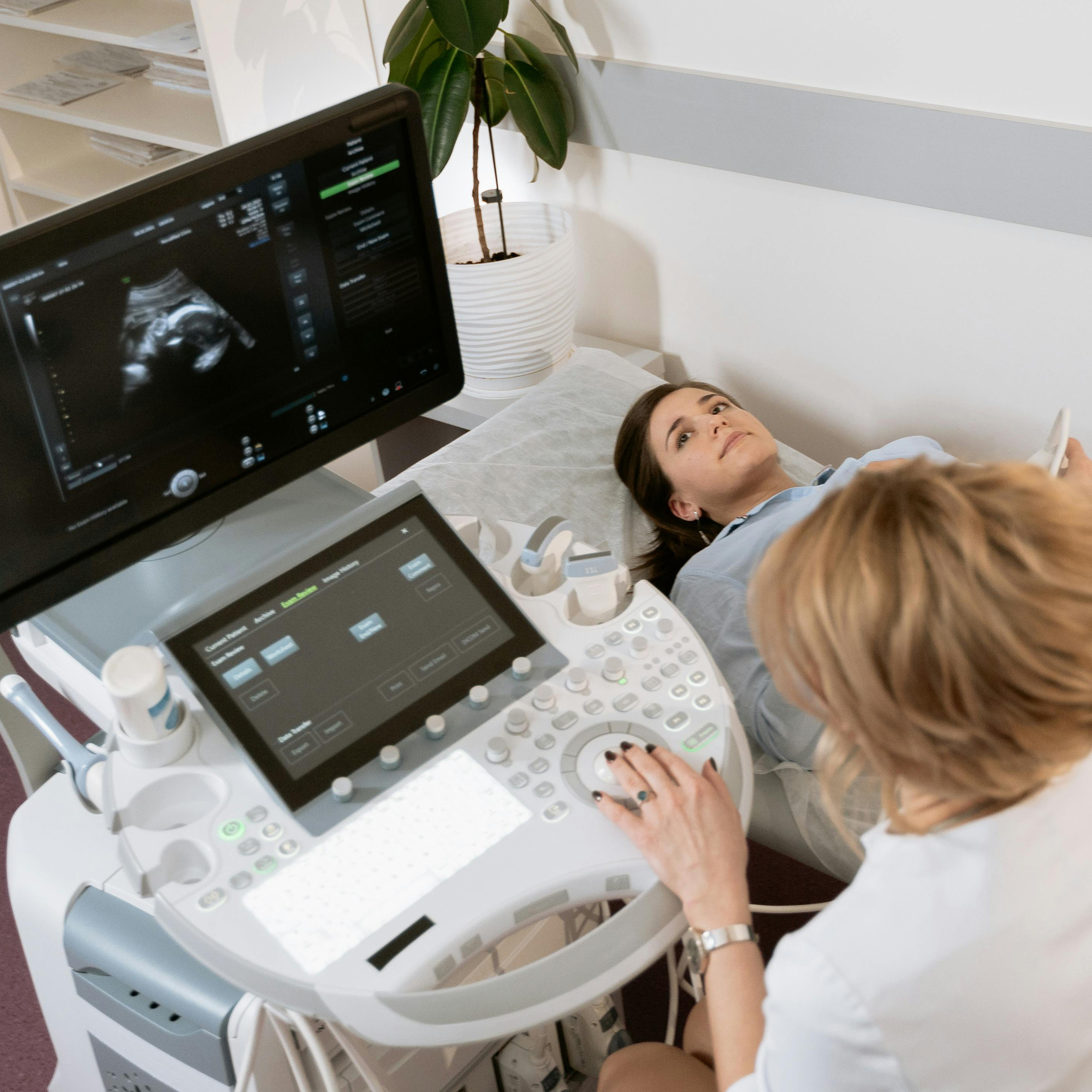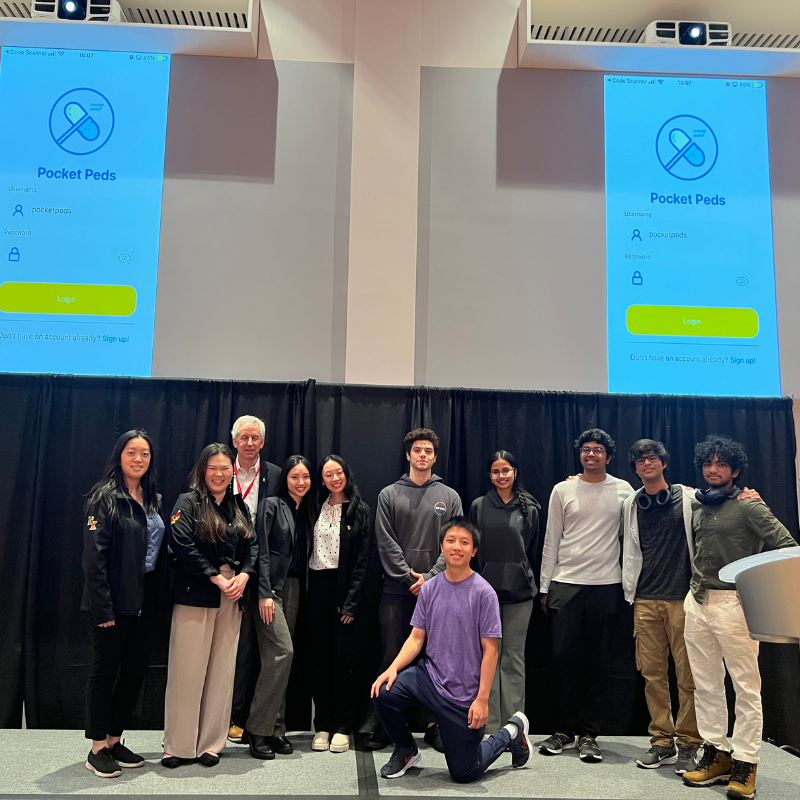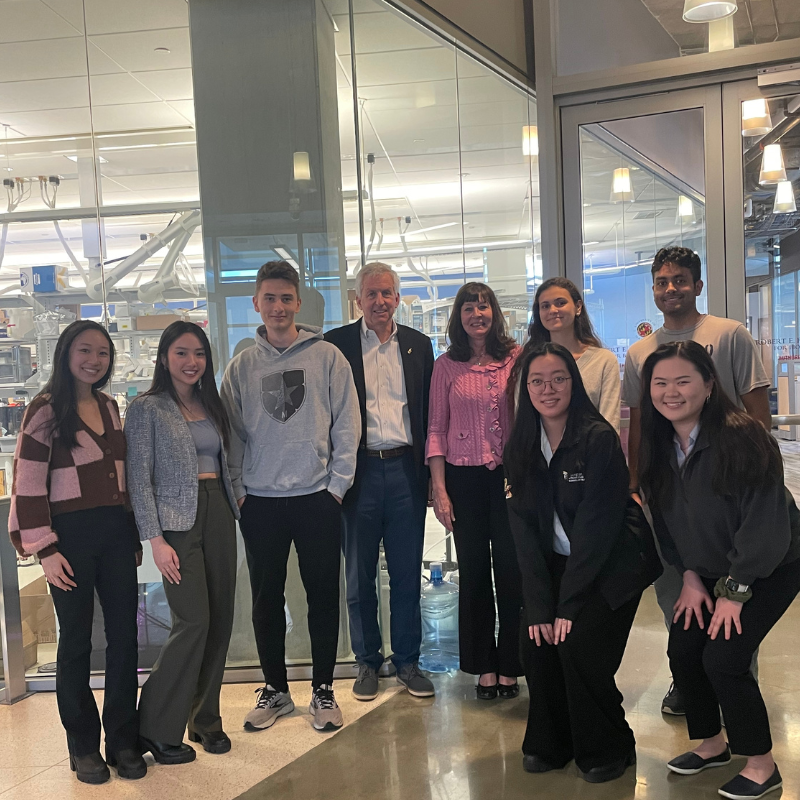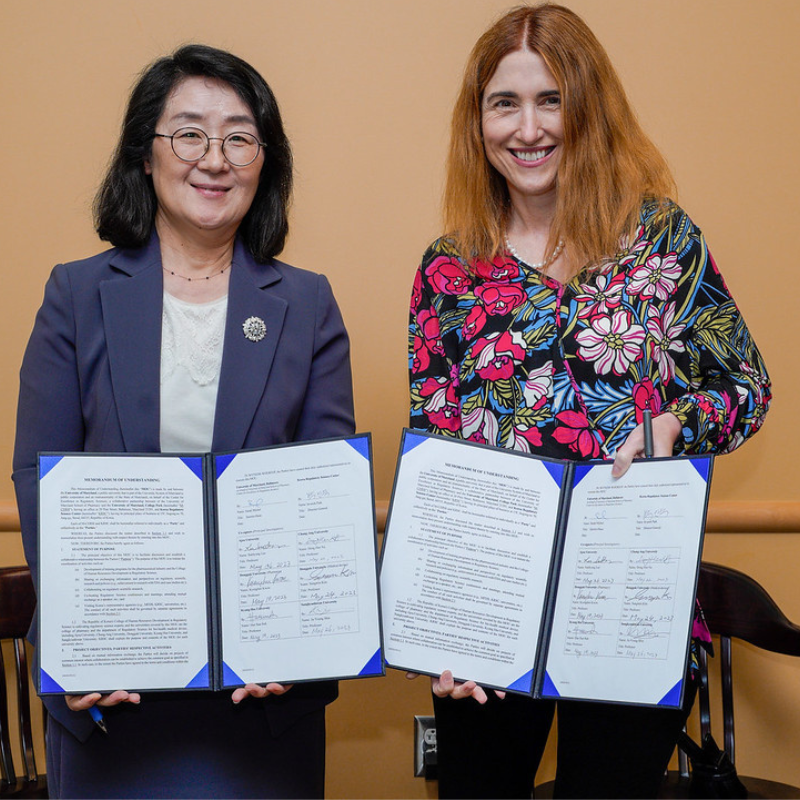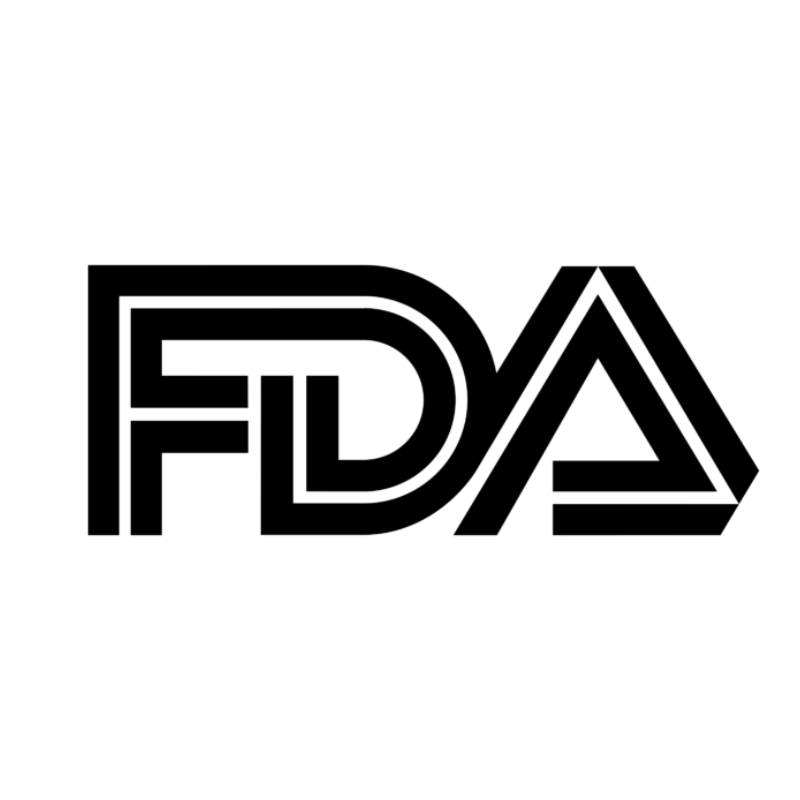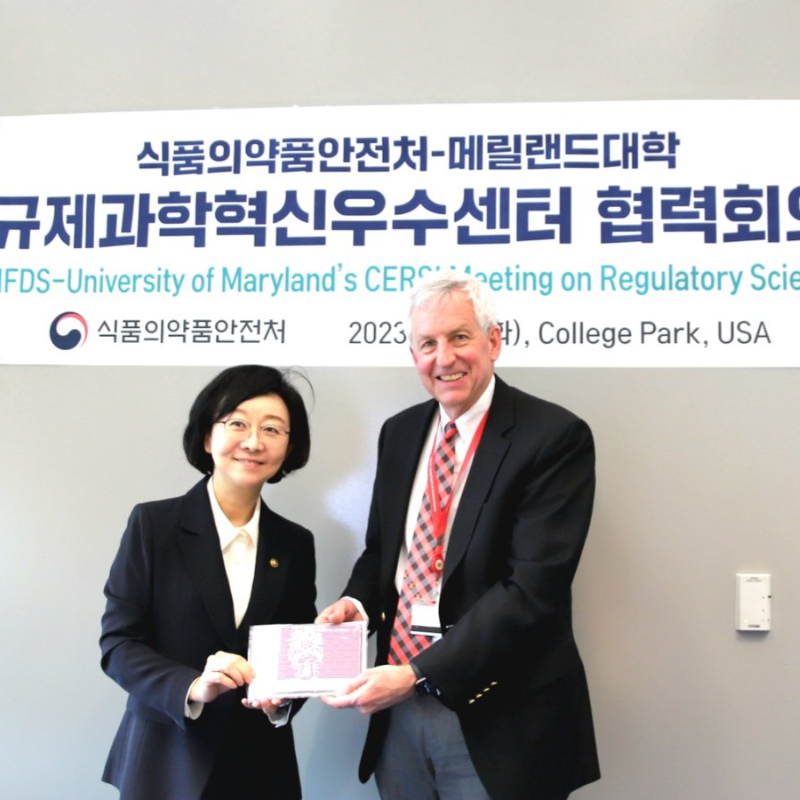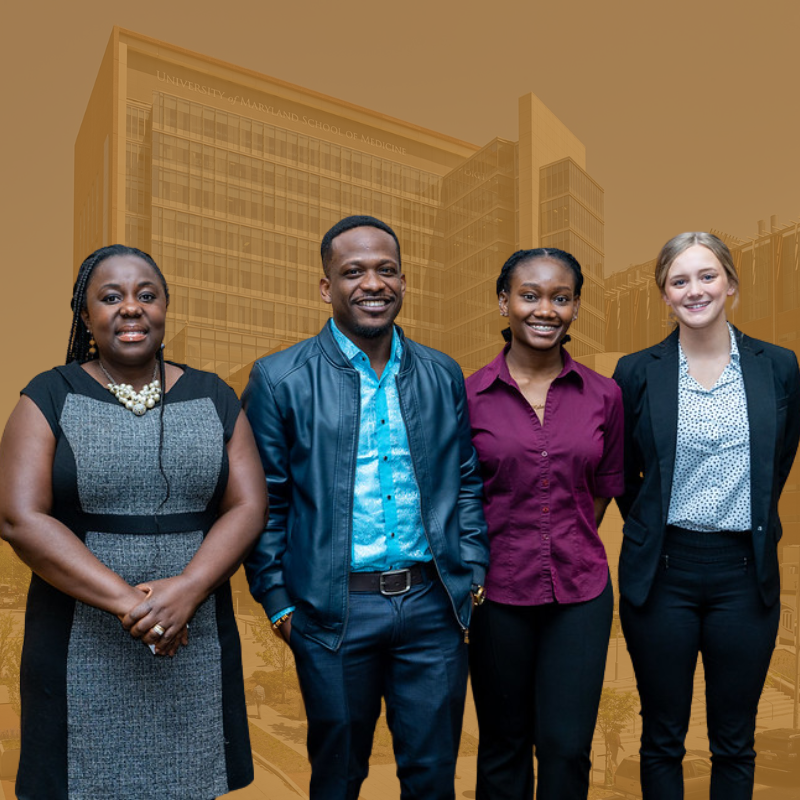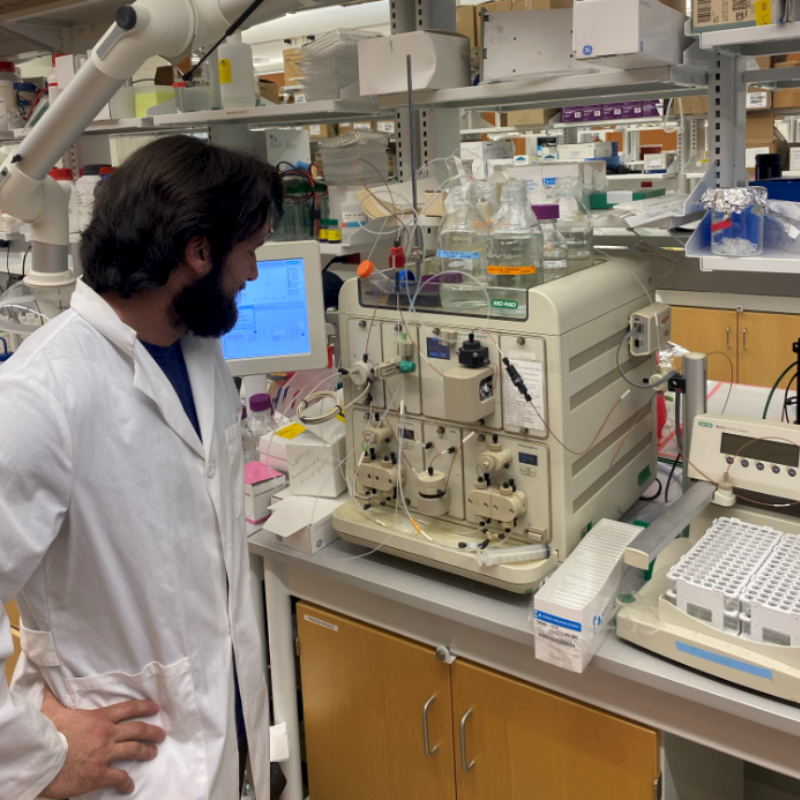News Story
3rd Annual "America's Got Regulatory Science Talent" Competition
Winners of student regulatory science talent competition propose mobile application to help improve patient medication knowledge.
By: Sylvia A. Bolls
Wednesday, February 11, 2015
In today’s world, the average adult between the ages of 65 and 69 takes almost 14 prescriptions per year, and those aged 80-84 take 18 prescriptions. With the safety information for each medication constantly changing, it can be difficult for consumers to be informed about their medications.
The winning team at this year’s “America’s Got Regulatory Science Talent” competition hosted on Jan. 30 by the University of Maryland’s Center of Excellence in Regulatory Science and Innovation (M-CERSI) had a solution to the problem.
The PHSRegulators, a team of five PhD students from the Department of Pharmaceutical Health Services Research, impressed the judges with their presentation of a mobile application that consumers can download to their smartphones in order to receive safety information directly from the Food and Drug Administration (FDA). The app also allows patients to report side effects from their medications, both prescription and over the counter, directly to the FDA.
“In today’s culture, everyone has a smartphone with more than six billion people in the world using mobile applications,” says Bilal Khokar, one of the PHSRegulators. “Our team proposed the creation of an official FDA app that would be produced and managed by the FDA in order to communicate safety information directly to those people who take medication. The beauty of the app is that it also serves as a data collection tool for the FDA because it asks users to report any side effects or adverse reactions they may experience as a result of taking their medication.“
Khokar’s teammates were Priyanka Gaitonde, Maya Hanna, Elisabeth Oehrlein, and Jan Seiluk.
The use of technology was a recurring theme amongst the five teams in the competition, which was judged by two University of Maryland faculty members and a representative from the FDA – Steven Fletcher, PhD, assistant professor of pharmaceutical sciences; Eleanor Perfetto, PhD, professor of pharmaceutical health services research, and Carolyn Wilson, PhD, associate director for research at the FDA.
“The level of detail and innovation presented by each team was very impressive,” says Wilson. “They really thought through potential complications and issues regarding privacy in regards to medication information.”
“I was pleased to see what great communicators our students have become in presenting their innovative ideas,” says Perfetto. “Their presentations were really dynamic.”
The judges awarded second place to a team of six Doctor of Pharmacy students who focused on using “scannable” QR codes to educate patients about possible medication risks. This team, named One Correction, proposed placing a bar code directly onto medication bottles that can be scanned by a smartphone app so that patients can access information about the medication presented in easy to understand terminology. Team members included Kevin Lei, Bob Pang, Kumaran Ramakrishnan, Pragya Shrestha, Emmanuel Ventura, and Joyce Yu.
The third place team of Kenneth Doan, Sophia Ma, and Benjamin Wu, all Doctor of Pharmacy students, proposed a mobile application for the utilization of QR codes that link instructional videos to medical devices.
“Several graduate students and post-doctoral students are already working on different research projects with the FDA,” says James Polli, PhD, the Shangraw/Noxell Endowed Chair in Industrial Pharmacy and Pharmaceutics at the School of Pharmacy and co-director M-CERSI. “The goal of this competition is to spark an interest in regulatory science amongst students from all different educational backgrounds. Each team that presented have been excellent. These students have an opportunity to create their own ideas and still have fun with this competition.”
The winner of the “America’s Got Regulatory Science Talent” competition will have the opportunity to present their proposal to the FDA’s Office of the Chief Scientist.
M-CERSI is a collaborative partnership between the FDA, the University of Maryland, Baltimore, and the University of Maryland, College Park that focuses on modernizing and improving the ways in which drugs and medical devices are reviewed and evaluated.
Published February 16, 2015

